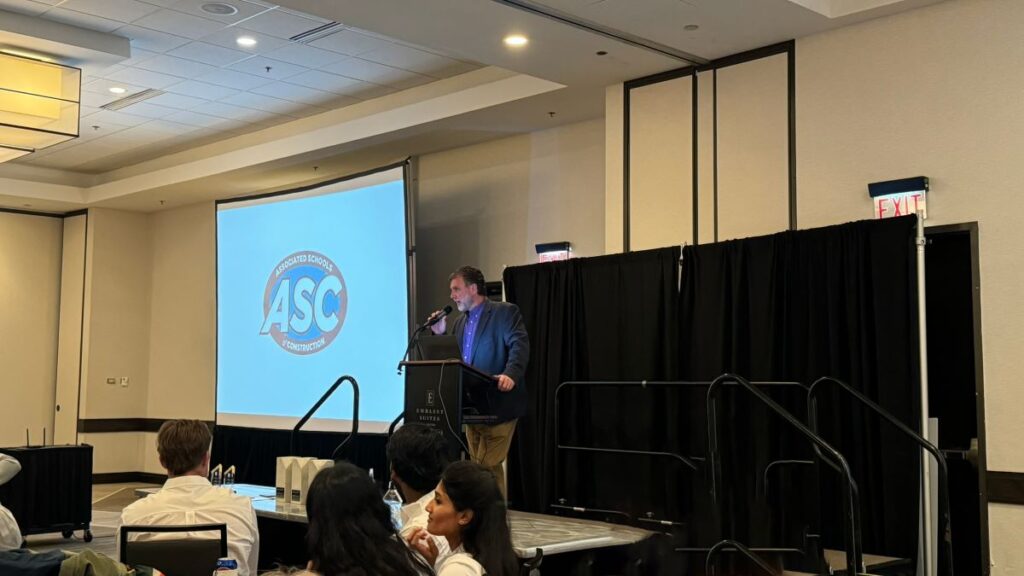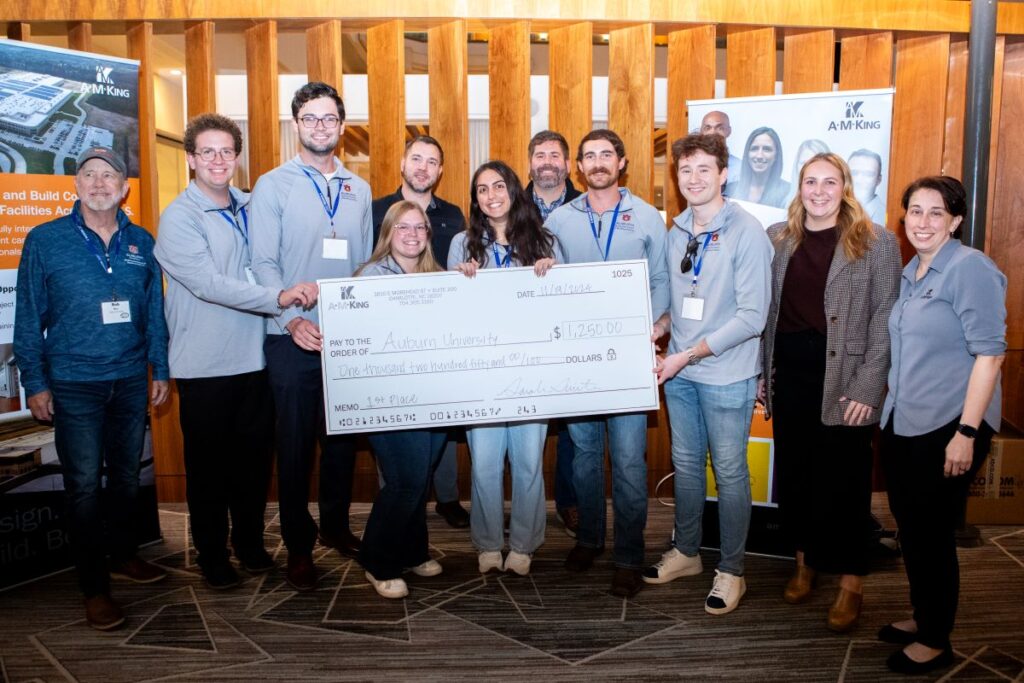How AEC Students Benefit from ASC Design-Build Competition
Last month A M King provided the project for our fifth Associated Schools of Construction event —the ASC Design-Build Competition— in Greenville, SC. What an amazing opportunity it has been to meet and engage with such talented young men and women who will no doubt be future leaders within the AEC industry. Congrats to the 2024 winning team from Auburn University!
Nearly five years ago, we added sponsorship of the ASC Region 2 Design-Build Competition as part of our ongoing efforts to give back to the industry and strengthen our university partnerships. Each semester we come back to stir AEC students’ interest in solving real-world design and construction challenges. It always amazes me how just a spark of inspiration can fuel their creativity, productivity and determination.
We work closely with the ASC’s Region 2 Director John Hildreth, PhD., who is also Kimmel Distinguished Professor, School of Construction Management at Western Carolina University. Dr. Hildreth has been actively involved in ASC for nearly 15 years and it’s a real treat anytime I get a chance to talk with him.
Following is my interview with Dr. Hildreth about the history of the competition, as well as benefits for participating universities, students and sponsor companies.
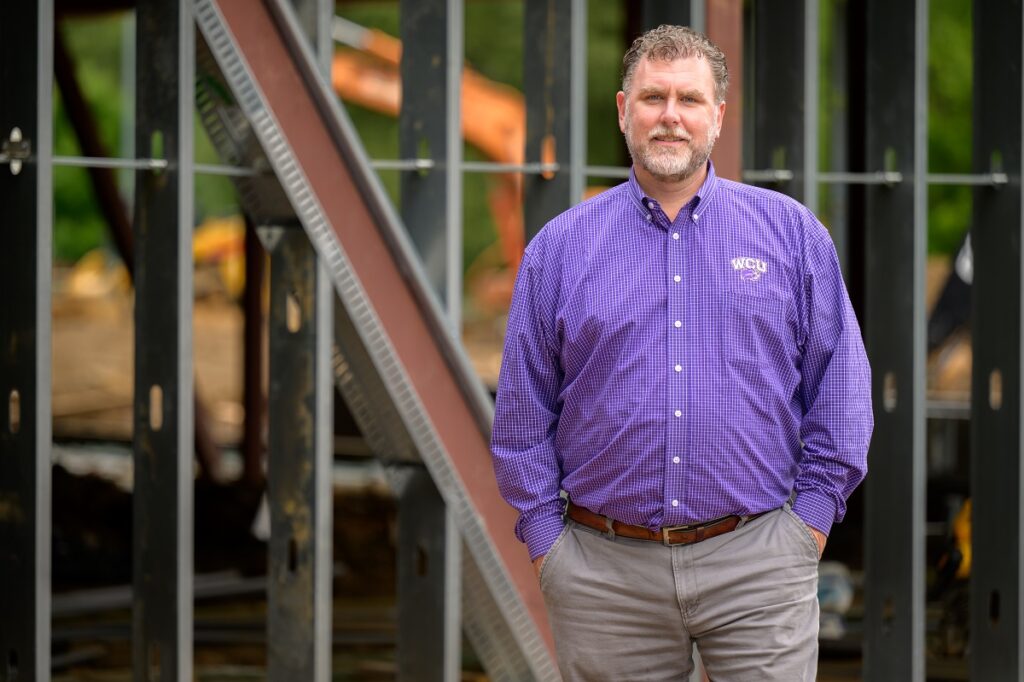
JD: Tell us about the history of the ASC competition.
John: These competitions have existed for many years to provide students of construction an opportunity to engage in real-world construction problems. Now all construction programs include a capstone course where students apply the skills and knowledge gained from courses throughout their time at university. It wasn’t always that way, and the competitions were (and still are) a means for students to apply those skills and knowledge in a collaborative team environment. The competitions also uniquely allow students to interact with the project teams who originally faced and solved those problems.
Competitions have been held in the areas of commercial, heavy/civil, concrete construction, and preconstruction. But each of the nine ASC regions runs its own competitions, and some include competitions in mechanical, electrical, VDC/BIM, design-build, mixed-use, sustainable building, and others.
Historically, the competitions were a collaboration between ASC and the Associated General Contractors of America (AGC), with regional winners going on to compete in the national competition. Over the years, the partnership with AGC has weakened and dissolved in some instances, as has the preliminary/national competition model. Now the competitions are primarily managed by ASC and financed by company sponsorships.
JD: Tell me more about the Design-Build component.
John: The Design-Build competition evolved in response to the changing delivery methods in the construction industry. Because of its unique requirements, teams are often interdisciplinary and include construction, architecture, engineering, and/or interior design students. This does somewhat limit which universities can participate because not all schools have the necessary programs, but we have nevertheless seen high levels of competition over the years.
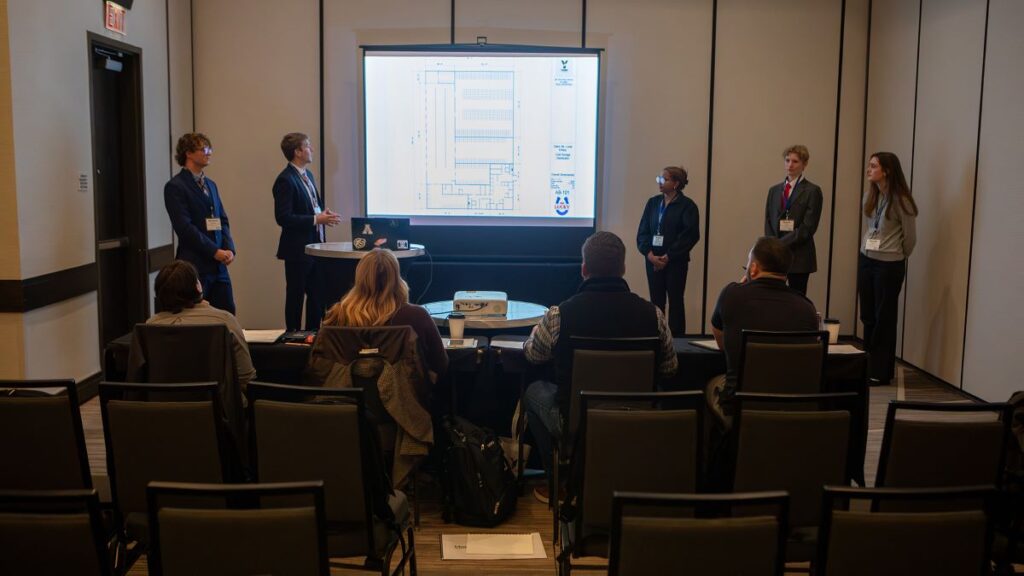
JD: Why is it important for universities to participate in this competition?
John: The ASC competitions benefit both the students and the faculty of the participating universities by providing an opportunity to engage with industry professionals and the real-world construction challenges they face daily. Much like a capstone course, the competitions give students the opportunity to collaboratively utilize knowledge and skills from courses throughout the curriculum, albeit in a fast paced and intense format.
JD: How do students benefit?
John: Students benefit from the competitions in several ways.
- They develop and hone their collaboration and communication skills through the teamwork that is central to competitions.
- They expand and develop their professional network through interactions with the competition sponsors and the career fair.
- They experience real-world construction challenges that are the basis for the competition problem statements.
- The feedback they receive on their work comes from experienced industry professionals with the intention of encouraging and bettering the students.
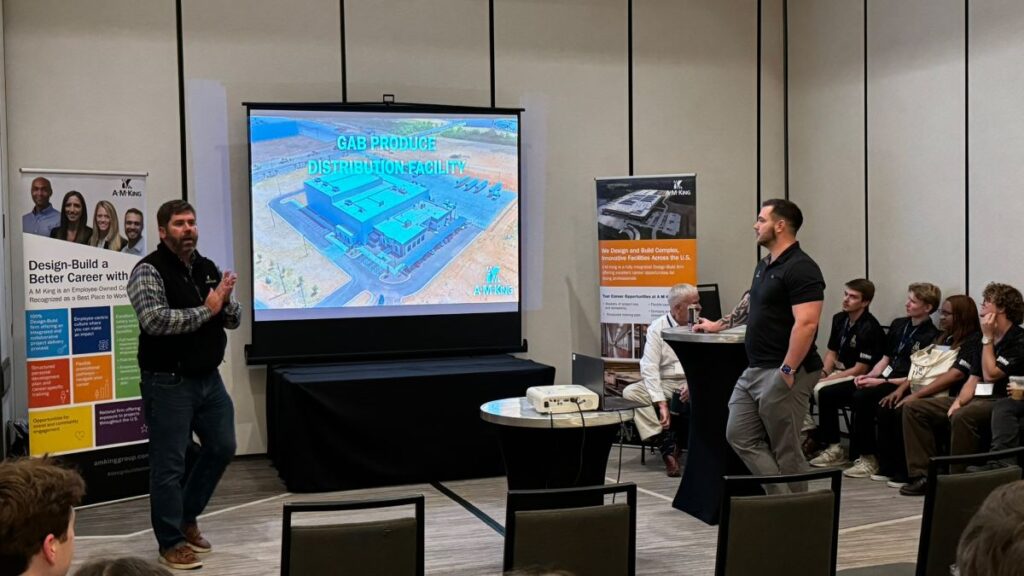
JD: What are the most critical components of a successful competition?
John: Like any construction project that goes well, the critical component to success is planning and preparation. For the competitions, both the student teams and the competition sponsors need to plan and prepare. The student teams put in a great deal of effort preparing by establishing roles and responsibilities, anticipating the requirements, and practicing their skills. Similarly, the sponsors carefully plan the objectives and deliverables, and prepare the documents, competition schedule, and their team of professionals who will engage with the students.
JD: Can you give me a specific example about how students effectively navigate real-world projects in the competition?
John: The Design-Build problem statement developed by A M King for the 2024 competition is a great example of engaging students in real-world projects. The students were effectively given a greenfield site and tasked with developing a proposal for a cold storage distribution facility.
Their proposals needed to address programming and design for the building and site, as well as construction management services through commissioning and close-out. Students were only given a few days to develop their proposals, so the depth of details was somewhat limited, but the project and scope are entirely real-world.
JD: How can sponsor companies best contribute?
John: Certainly the planning and preparation described above is a significant contribution to the success of the competitions but also important is carefully planning their interactions with the students at the competition kickoff, at the career fair and networking events, and at the award ceremony. Companies can make a significant positive contribution to the students by providing meaningful, constructive, and encouraging feedback on the work and presentation of the students.
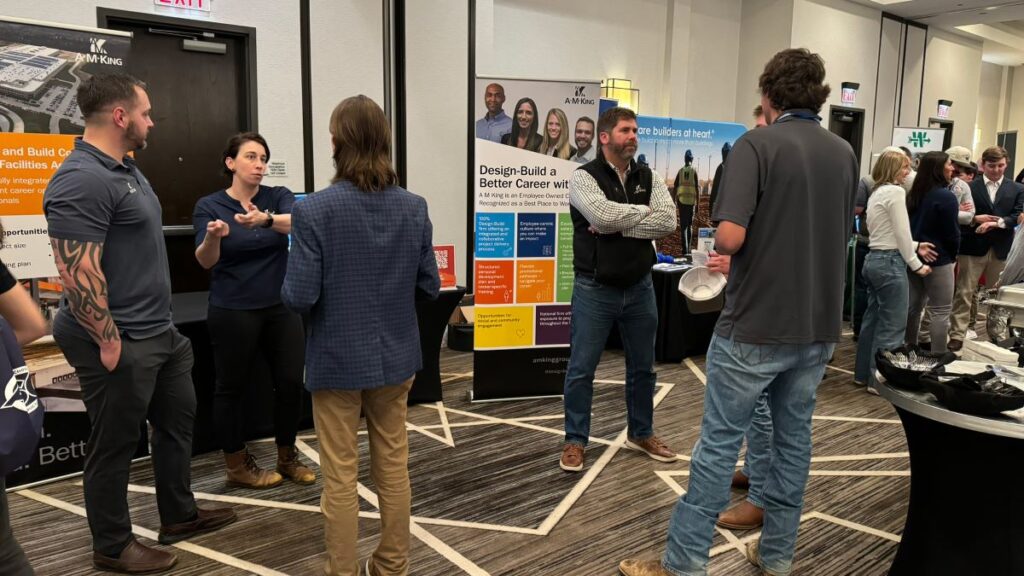
JD: Is recruiting a primary objective for participating companies and how do you feel about that?
John: During the competition meeting – while we are all together in the event space – we try to limit recruiting of students by companies to the career fair. When it is time for the competition, I think folks set recruiting aside. While it’s certainly on their minds, the sponsors are professionals and understand the need to focus on the students and their work. We (ASC Region 2) encourage companies – both competition sponsors and career fair attendees – to follow up after the competition with those students they feel fit well with their culture.
During the competitions, it is my experience that the primary objective of the companies is to encourage the students, prepare them for a professional career in construction, and build the next generation of construction professionals.

About the Author, JD Boone – JD Boone, A M King Business Unit Leader, develops effective plans and collaboratively manages design and construction teams for large, complex projects throughout the U.S., specializing in food processing, food distribution and cold storage facilities. He organizes A M King’s participation in the ASC’s Design-Build competition, heads up recruiting and mentors young professionals on food industry projects.
About John Hildreth, PhD – John Hildreth is the Kimmel Distinguished Professor of Construction Management at Western Carolina University. He also currently serves as the interim Associate Dean for Research. His teaching and research interests focus on construction equipment, asset management, cost estimating, and production planning. He has completed multiple research projects related to the effective and efficient management of mobile equipment and the capital-intensive assets of transportation systems. John has provided consulting services related to equipment and fleet management and has been an instructor for the Construction Equipment Management Program (CEMP). He is the educational advisor to the Association of Construction Equipment Managers and past chair of the Transportation Research Board (TRB) Maintenance Fleet and Equipment committee. He holds civil engineering degrees (BS and MS) from West Virginia University and a PhD from Virginia Tech.
